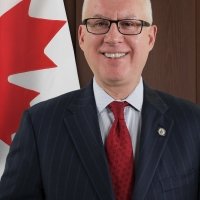Omer Aziz, a former foreign policy advisor in Prime Minister Trudeau's government, wrote on September 22 that fear of losing "the Sikh vote to Jagmeet Singh," leader of Canada's New Democratic Party, led the Trudeau government to "dig in its heels" in response to Indian government demands that Canada ensure our territory "was not used for terrorist financing" by supporters of an independent Sikh state in India. Aziz's assertion seems to have caught Canada's commentariat by surprise – presumably due to his one-time proximity to the Liberal government and because diaspora capture of foreign policy receives less attention on Canadian Op-Ed pages than is likely warranted.
In the late 1990s, while at Johns Hopkins University’s School of Advanced International Studies, I wrote a doctoral dissertation analyzing activity by diaspora communities in Canada in pursuit of their preferred foreign policy outcomes. Extrapolating from in-depth interviews across Canada with leaders of the Armenian, Haitian, and Sikh communities – and with those they sought to influence – it was possible to draw multiple conclusions concerning what ‘mix’ of objectives and activities maximized a community’s chances of achieving at least some success and, conversely, what mix increased their odds of failure. These conclusions seemed to have general applicability at the time. And they appear to have stood the test of time.
Then, as I believe pertains today, radicals seeking overt Canadian government support for the dismemberment of a generally friendly country were doomed to fail. Of course – and often to the consternation of foreign governments – Canadian governments appropriately refrain from interfering with peaceful, law-abiding actions by segments of any diaspora community, or by any Canadians, supporting human/democratic rights abroad.
It may well be that a greater percentage of Sikh-Canadians in the 1980s and 1990s were supportive of an independent Khalistan, carved from Indian territory, than is currently the case. Indian governments of that era were as stridently opposed to the government of Canada showing any tolerance for ‘terrorist’ activities launched from Canadian soil against the territorial integrity of India as they are today. What seems different today is the extent and aggressiveness with which foreign governments – for example, India or China – feel disposed to act on Canadian soil against Canadian citizens whom they consider threatening to their interests.
Omer Aziz implicitly highlights another major development over the past twenty-five years: the vastly increasing political importance of Sikhs in Canada. Canada’s Sikh community numbers approximately 770,000, or 1.9% of the total population. The first turbaned Sikh was elected to Canada’s Parliament in 1993; in 2023, there are fifteen Sikh MPs constituting 4.3% of the House of Commons. Twelve of the fifteen are Liberals, including two members of PM Trudeau’s Cabinet; two are Conservatives and both from Alberta, including the Shadow Finance Minister; one, Jagmeet Singh, who represents a British Columbia district, leads the New Democratic Party, the de-facto coalition partner of the minority Liberal government. It is not an exaggeration to say that Sikhs have become part of Canada’s political establishment.
The raw numbers, while impressive in themselves, do not tell the full story. While the Canadian population of Hindu origin is slightly larger at 828,000 and 2.1% of the total population, Sikhs enjoy a well-earned reputation for being much more politically engaged than other diaspora communities in Canada. To be sure, the overwhelming majority of Sikh Canadians elected to federal, provincial, or municipal office live in areas of the country in which there are significant concentrations of Sikhs. But the population, in fact, is quite dispersed – in the sense that “the Sikh vote,” to invoke Aziz’s term, is a significant factor as party politics play out across the country.
For American readers, the process of selecting party candidates in districts across the United States – or, for that matter, of choosing party nominees for president or state-wide offices – might serve as an instructive comparative. Candidates wishing to be the Democratic or Republican nominee for a given office frequently compete in competitive primaries. Thousands, often tens of thousands, of registered party members in the district or state vote in those primaries. The victorious candidate, oftentimes, has already secured a high proportion of the total vote that he or she will require to prevail in the general election.
In Canadian constituency nominations or leadership selection processes, by contrast, it is often the case that the candidate chosen to represent a given party in the general election receives only a few hundred votes from members voting at a meeting open only to those who purchased a party membership some weeks or months earlier. This process is somewhat more akin to selection of a US candidate at a caucus rather than a primary.
Decade-over-decade, Canadian participation in partisan processes, as distinct from general elections, has been declining, with the notable exception of certain diaspora communities, especially Sikhs. Party dependency on the participation of diaspora community members has concomitantly grown. Fifty, seventy-five, or a hundred Sikh Canadians voting at a party’s constituency nomination meeting where only two-or-three hundred people in total may be voting constitute a significant proportion of the electorate. In ridings with small overall Sikh populations, this participation will not likely result in the selection of a Sikh to be the party’s local candidate. But a disciplined, carefully cultivated cadre of Sikh party members could easily make the difference between the candidate preferred by the party leadership prevailing or someone winning the nomination who, potentially, could be an embarrassment to the party.
Aziz could be referencing these Sikh voters every bit as much as those who, if they were to shift their allegiance from the Liberals to the NDP, could cause one or more of those twelve ridings currently held by Liberal MPs who are Sikh to be won in a general election instead by an NDP candidate who is also a Sikh. Both are important.
Diasporas in Canada often prioritize foreign policy objectives ahead of other concerns. Sikhs, and members of some other diaspora communities, are prone to elevated levels of political engagement. In no democratic system are parties inclined to alienate voters on whom they increasingly depend. Which speaks to the reluctance of the Canadian government to accommodate what Aziz regards as a “reasonable demand” of the Government of India: that Canada begin “to take steps to ensure that our land was not used for terrorist financing.”
Today we face a situation in which the Government of India seems quick to characterize Canadian Sikhs as “terrorists.” It displays scant regard for constitutional and legal protections enjoyed by Canadian citizens. Their agents may engage in criminal actions against Canadian citizens on Canadian soil. And they seem dearly to want Canadian political leaders to do and say things certain to alienate themselves and their parties from Sikh Canadian voters.
Meanwhile, if Omer Aziz is correct, the current Canadian political leadership is unwilling to take on board “reasonable” requests of the Government of India. Notwithstanding that a small minority of Canadian Sikhs are supportive of an independent Khalistan, Canadian political leaders, surmising from Aziz, are so fearful of “losing the Sikh vote” that rather than challenge those Sikhs about whom the Indian government may have legitimate concerns, they look the other way. It is possibly the case that through political hyper-activity, Canadian Sikhs have overcome traditional constraints limiting the potential for foreign policy impacts of diaspora communities.
Author

Fellow, Balsillie School of International Affairs/Adjunct Assistant Professor, University of Waterloo

Canada Institute
The mission of the Wilson Center's Canada Institute is to raise the level of knowledge of Canada in the United States, particularly within the Washington, DC policy community. Research projects, initiatives, podcasts, and publications cover contemporary Canada, US-Canadian relations, North American political economy, and Canada's global role as it intersects with US national interests. Read more

Explore More
Browse Insights & Analysis
360° View of How Southeast Asia Can Attract More FDI in Chips and AI

A Case for a North American Common Tariff


